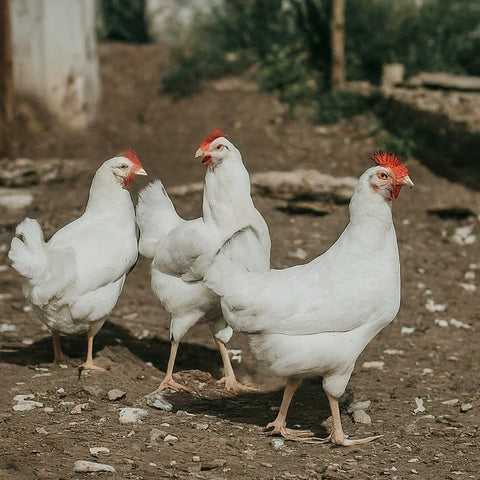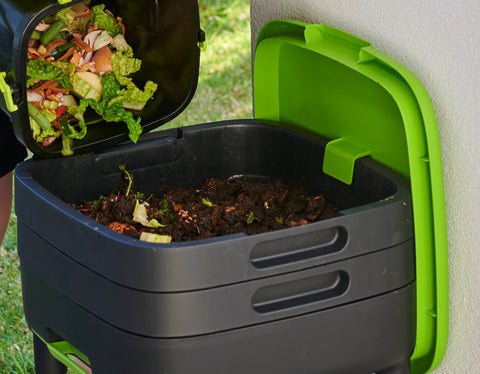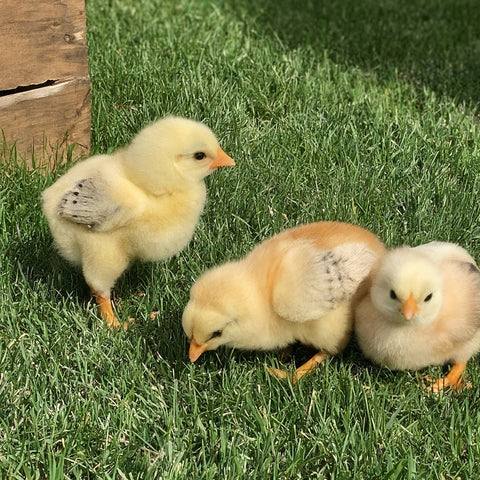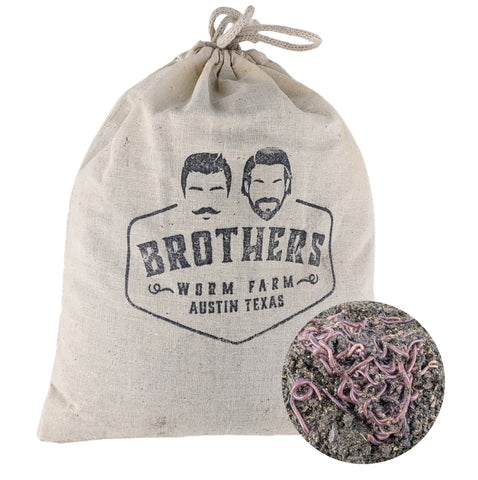
Do Chickens Eat Worms?
Earthworms are a favorite food of chickens and many other small animals.
In fact, the earthworm’s list of predators is a long one and in addition to birds includes mice, armadillos, possums, moles, snakes and even frogs and toads!
In this article we’ll explore:
- why chickens love worms so much,
- how many worms a chicken can eat per day,
- the risks of feeding worms to your chicks, and
- how to go about producing earthworms on your own.
Why do Chickens Eat Earthworms?
Despite their unappealing appearance, the earthworm is a nutritional powerhouse, packed with protein and other essential vitamins and minerals. For chickens, this nutrient-rich snack helps promote good health and rapid growth. In addition, earthworms are often readily available in the ground, so they are a convenient option for chickens and their offspring.

Chickens are conditioned to look for food in the ground.
Chickens likely enjoy the taste of a wiggly earthworm as well, and earthworms also provide chickens with additional sources of hydration.
Chickens generally take in most of their water from their food, and earthworms are 75% percent water.
How Many Worms Can a Chicken Eat Per Day
Mature chickens can eat 75-100 worms per day. However, chickens need variety in their diet so earthworms should be given to chickens in moderation and as part of a balanced diet. It's important to make sure that chickens have access to a high-quality chicken feed that provides them with the nutrients they need to stay healthy.
Earthworms are a good source of protein and other nutrients for chickens, and they are generally well-liked by chickens. But worms would be an expensive feedstock if that were the only food given to your chickens.

Earthworms are a good source of protein and minerals for chickens.
So while worms may be an occasional part of your feathered friend's meal plan, they shouldn't be the main course.
Best Worms for Chickens to Eat
Not all worms are created equal - some have more nutrition than others, and some can carry parasites that can harm your flock.
So which worms make the best snack for chickens?
Red wigglers (aka redworms) and European Nightcrawlers are one of the most nutrient-dense meals for birds, as these creatures contain high levels of calcium, protein, and carbohydrates.

In fact, earthworms like red wigglers provide the most calories, proteins, fats, and minerals per gram of all kinds of invertebrates.
Mealworms are another good option, but they need to be stored in a cool place because they quickly dehydrate when exposed to warm temperatures.
How to Grow Earthworms for Chickens
If you want to grow your own earthworms to feed to chickens, the process is straightforward and you may already have most of what you need on hand. You’ll need a bucket or bin for the worms, compost or peat moss for bedding, and a starter worm population. The worms require moist conditions and will eat kitchen scraps (stick to softer foods like fruits). Over time their population should grow, allowing you to use some as a feedstock for your chickens.
If you decide to grow your own earthworms, there are 2 options to consider:

The Maze Farm is a good starter worm bin for breeding worms.

How to Feed Worms to Chickens
Feeding worms to chickens is a straightforward process - simply toss the worms on the ground near the chickens and the birds will do the rest. If you have a large population of chickens it may make sense to feed worms to them in smaller groups, otherwise the worms may only get eaten by a few of the stronger chickens.
What are the Downsides to Feeding Worms to your Chickens
The main downside to feeding worms to chickens is that it will require many worms to adequately feed your chickens. A single mature chicken can eat 75 or more worms in a day, so over the course of 2 weeks a single chicken can consume $60-75 worth of earthworms. It’s also possible worms can carry parasites like gape worm that can harm chickens, but this risk is generally very small and can also happen if the chickens eat worms from the ground.
1 Lb of worms (about 1000 worms) costs $49.
FAQs: Can Chickens Eat Worms?
Can baby chickens eat earthworms?
Yes, since earthworms are a national food source for chickens, baby chickens are able to eat earthworms soon after hatching.

Baby chickens can eat earthworms from birth.
Can chickens eat worms from the garden?
Yes, common earthworms from the garden like red wigglers and European Nightcrawlers are a great source of protein, minerals, and hydration for chickens. Worms are a natural food source for chickens and most birds so garden worms work well as feedstock for chickens.
How often should chickens eat worms?
Chickens are omnivores, which means they eat both plant and animal foods. Chickens need a balanced diet of plant- and protein-based foods, so having worms as a mainstay in their diet is fine but they also need a variety of other foods as well.
Can chickens eat mealworms?
Yes, meal worms are often incorporated into feedstock for chickens. Like earthworms, mealworms are an excellent source of protein, fatty and amino acids, and vitamins for chickens. Mealworms can be fed to chickens live or in a dried form.


